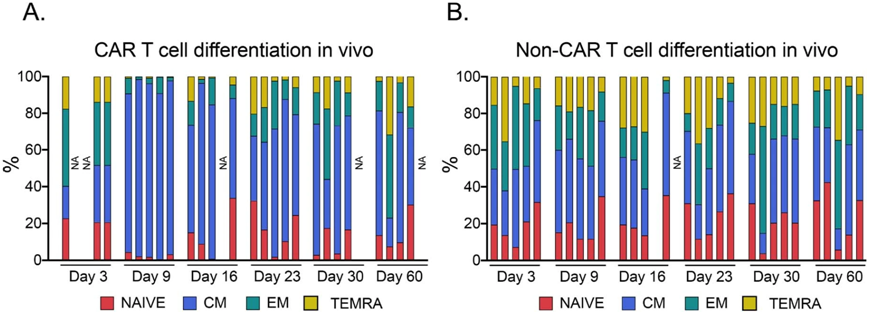While there is no cure for lupus erythematosus and existing treatments don’t work for many of the 1.5 million lupus erythematosus patients in the U.S., a new study shows that a cancer therapy may provide relief for difficult-to-treat lupus erythematosus. The results of the study were published online in the journal Nature Medicine on September 15, 2022, with the title “Anti-CD19 CAR T cell therapy for refractory systemic lupus erythematosus”.
Lupus erythematosus is an autoimmune disease. In this disease, the body’s immune system attacks its own skin, joints, bones, kidneys and heart, causing a cascade of symptoms.
CAR-T cell therapy, used to treat certain types of cancer, is prepared by first taking the patient’s own T cells, genetically modifying them in the laboratory to specifically recognize cancer cells, and then infusing them into Injected back into the patient to accomplish their effect. In lupus, the therapy targets CD19, a protein on the surface of B cells.
The small study included five people with severe lupus erythematosus, a disease that affects multiple organs, such as the kidneys, heart, lungs and joints, and does not respond to standard treatments.
About three months after a single treatment, the patient’s symptoms improved, including remission of organ involvement and disappearance of disease-related autoantibodies. What’s more, they don’t require any additional treatment. A previous study published in the journal NEJM in 2021 reported similar results in a patient with lupus erythematosus (NEJM, 2021, doi:10.1056/NEJMc2107725, detailed in BioNews: NEJM: Case report study shows CD19-targeting CAR -T cells are expected to treat systemic lupus erythematosus).
“Severe lupus erythematosus is very sensitive to CAR-T cell therapy, and patients can go into long-term drug-free remission,” said corresponding author Dr. Georg Schett of the University of Erlangen-Nuremberg, Germany.
The side effects in the new study were mild, he said. In cancer research, this type of therapy has caused high fever and chills, difficulty breathing, and cytokine release syndrome. Cytokine release syndrome can occur when CAR-T cells proliferate and release large amounts of inflammatory cytokines into the blood.
Now, the authors plan to find out whether the immune system has actually undergone a deep reset and continues to function normally. “It will be important to monitor patients for longer periods of time to test whether they enjoy long-term disease-free remission and ultimately cure lupus erythematosus,” Schett said.
Such a therapy could be available soon, he said. “CAR-T cell therapy has taken hold in cancer treatment, particularly lymphoma and leukemia,” Schett noted.
Lupus experts say they are excited about the new finding. “This is a very, very important thing,” said Hoang Nguyen, senior scientific program manager at the Lupus Research Alliance, whose organization supports preliminary studies of CAR-T cell therapy in a mouse model of lupus erythematosus.
“There is no real cure for lupus erythematosus, and current treatments are limited in their effectiveness,” Nguyen said. “This is the first time a therapy has eliminated lupus symptoms in all subjects in a 100-day study.” “Nevertheless, she cautions that the clinical study included only five people, and there is not enough information about the long-term effects.
Dr. Jill Buyon, director of the Lupus Erythematosus Center at NYU Langone Medical Center, said, “Patients improved in multiple symptoms and did not require additional therapy, including steroids. More needs to be done for more lupus patients. research and follow up for a longer period of time, but it’s very exciting.”
According to Ruth Fernandez Ruiz, MD, a rheumatologist at the Hospital for Special Surgery in New York City, “Patients with lupus erythematosus experienced significant clinical improvement after receiving CAR-T cell therapy and experienced a clinical remission. Despite the limited sample size, implementation of CAR-T cell therapy in lupus erythematosus is likely to be useful, especially in patients with severe disease that is resistant to standard treatments.”
References:
1. Andreas Mackensen et al. Anti-CD19 CAR T cell therapy for refractory systemic lupus erythematosus. Nature Medicine, 2022, doi:10.1038/s41591-022-02017-5.
2. In small study, CAR-T therapy pushes lupus into remission









